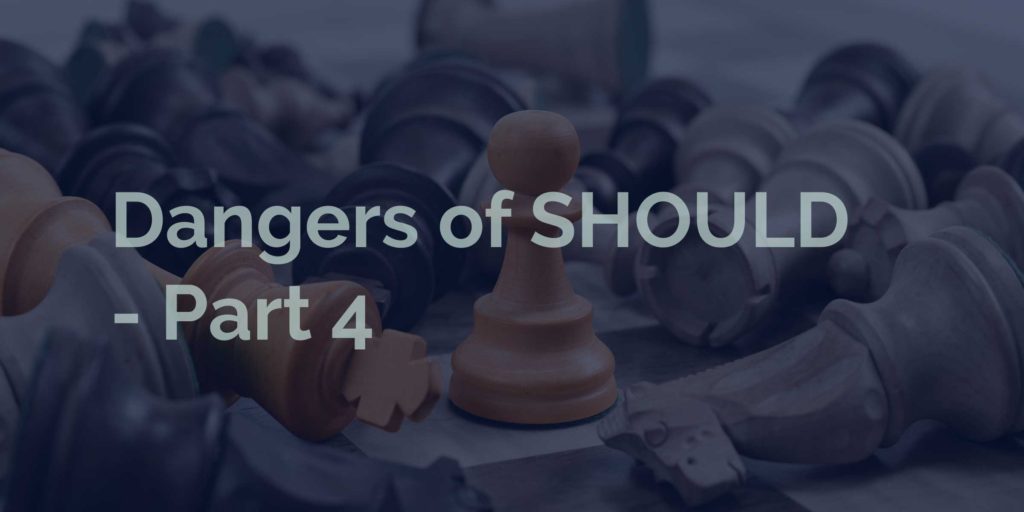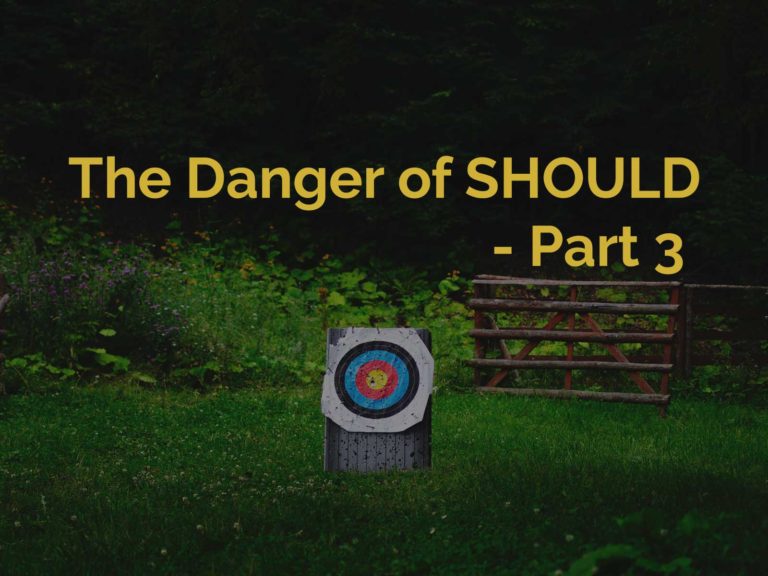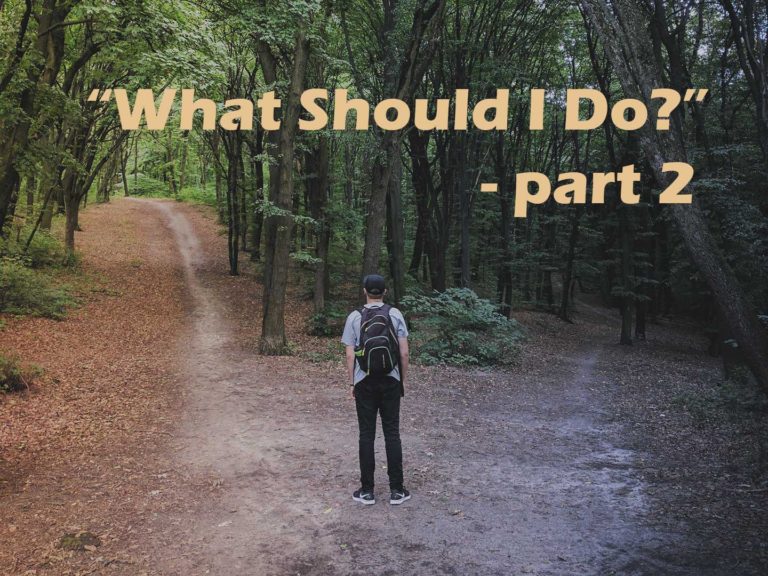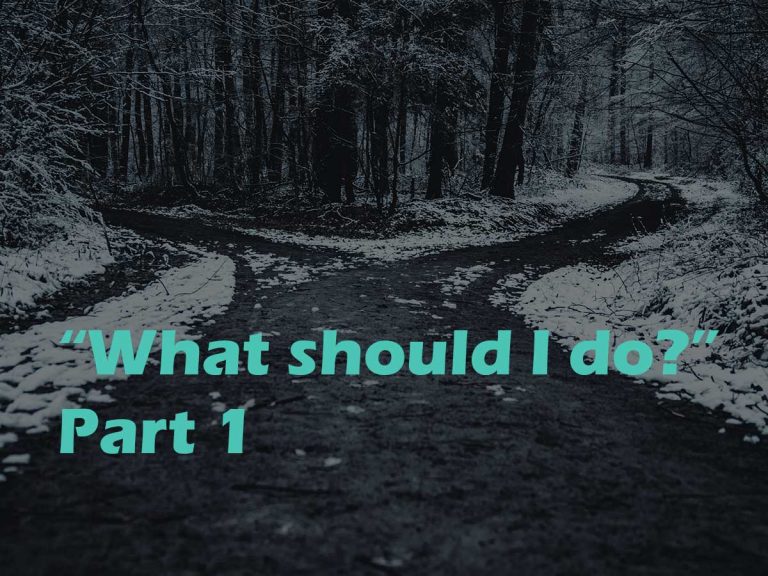
This is the last entry for my 4-part journey on exploring the danger of the word should. At least on the way I have used it.
Previously we explored these “should” questions:
- “How should this be done?”
- This promotes the mentality that there is one right way
- “What should I do?”
- I often answer this question from the perspectives of others
- “What should I be able to achieve?”
- High expectations
- Not celebrating small wins
In this latest entry, we will explore this last question.
“How should I get there?”
Strategy games have always been one of my favorite genres of video games. I find so much fulfillment out of those perfect games where everything seems to happen just as I anticipated; when I feel like I could foresee every one of my opponents’ moves and have my counters in place and ready for my enemy to fall in every single traps. In those games, I feel godly, omnipotent. I feel absolutely in control. It’s so amazingly satisfying.
However, when the events don’t turn out exactly the way I plan it, especially if the situation turns sour early on making it impossible for me to carry out the rest of my plans, I can get quite flustered. I find that it often takes the fun out of the whole thing for me. That’s why I find myself playing single player versions of strategy games more often. Because computer AI is more predictable than humans and if I get a bad start, I can just quit and restart without feeling obligated to finish the game with the opponent. The way I play strategy games, it’s almost like I expect it all to turn out as a choreographed action movie. That is how I find myself playing strategy games.
What I didn’t realize though was that I actually have been trying to play my real life the same way.
When I ask myself “How should I get there?”, the answer usually involves a list of carefully planned actions steps of A to Z. In my head, I choreograph the whole sequence of best case scenarios and most likely events. This “should” question leads me to dream up a fictional version of the future that I expect to become real.
But real life rarely happens that way. With so many variables and different people constantly involved, things tend to happen quite differently. And just like in a game, unexpected events get me flustered, irritated. And those emotions throw me off balance, rendering me much less effective in dealing with the situations. More often than not, life does not turn out exactly as I anticipate, so I am actually setting myself up for failure by always creating overly rigid and strict action plans.
Instead, what I find to be a much more productive and effective answer to the “How should I get there?” question involves focusing on just the next small step. What is a good action to take next that would get me one step closer to my ultimate goal?
I find that by focusing on a single step at a time, it strips away a lot of the worry and anxiety that I would normally get when my mind wonders about what could go wrong with steps B to Z, while I am still working on Step A. This focus allows me to be a lot more productive, creating much better momentum towards my goal. More importantly, this mindset shift allows me to be less future-focus and more present, leading to a life of better fulfillment and gratification that I have always desired.
All it took was one simple switch in my perspective. It wasn’t an easy switch, but it was definitely simple.


